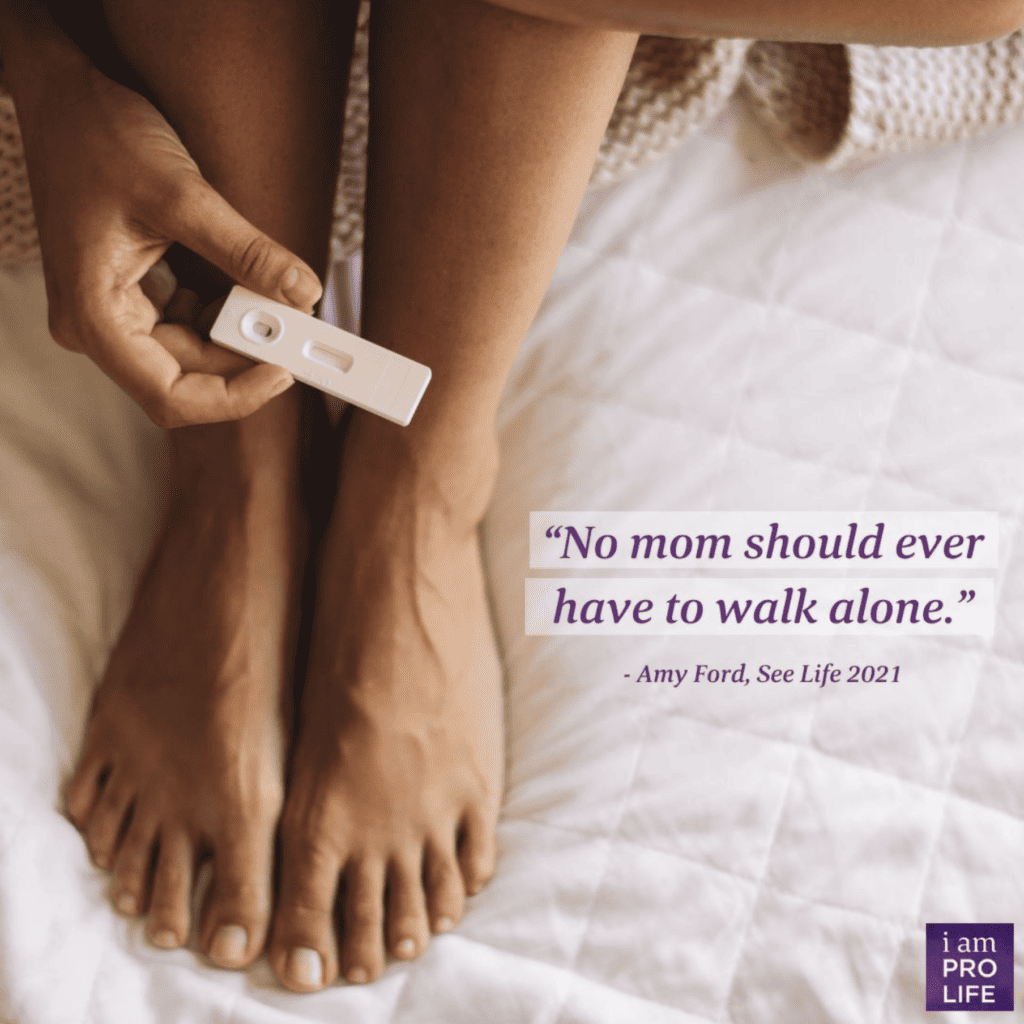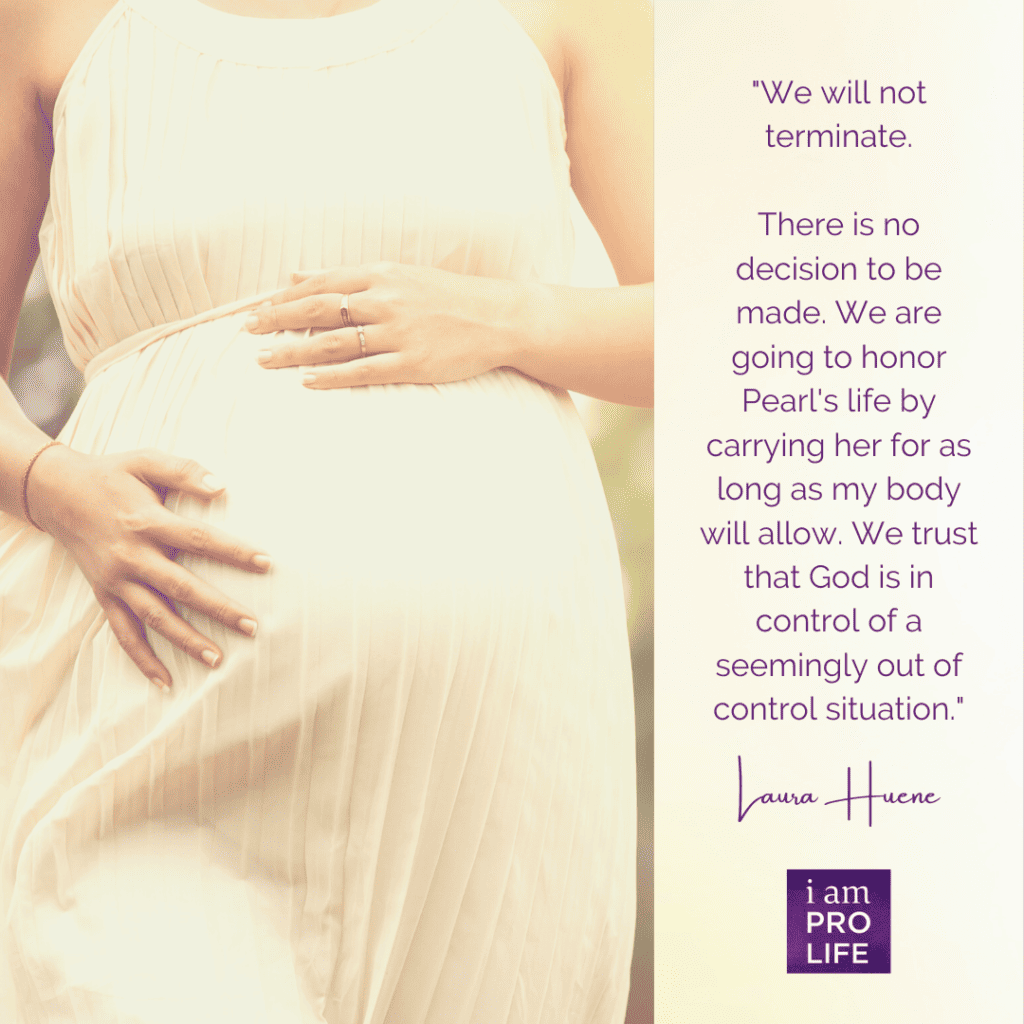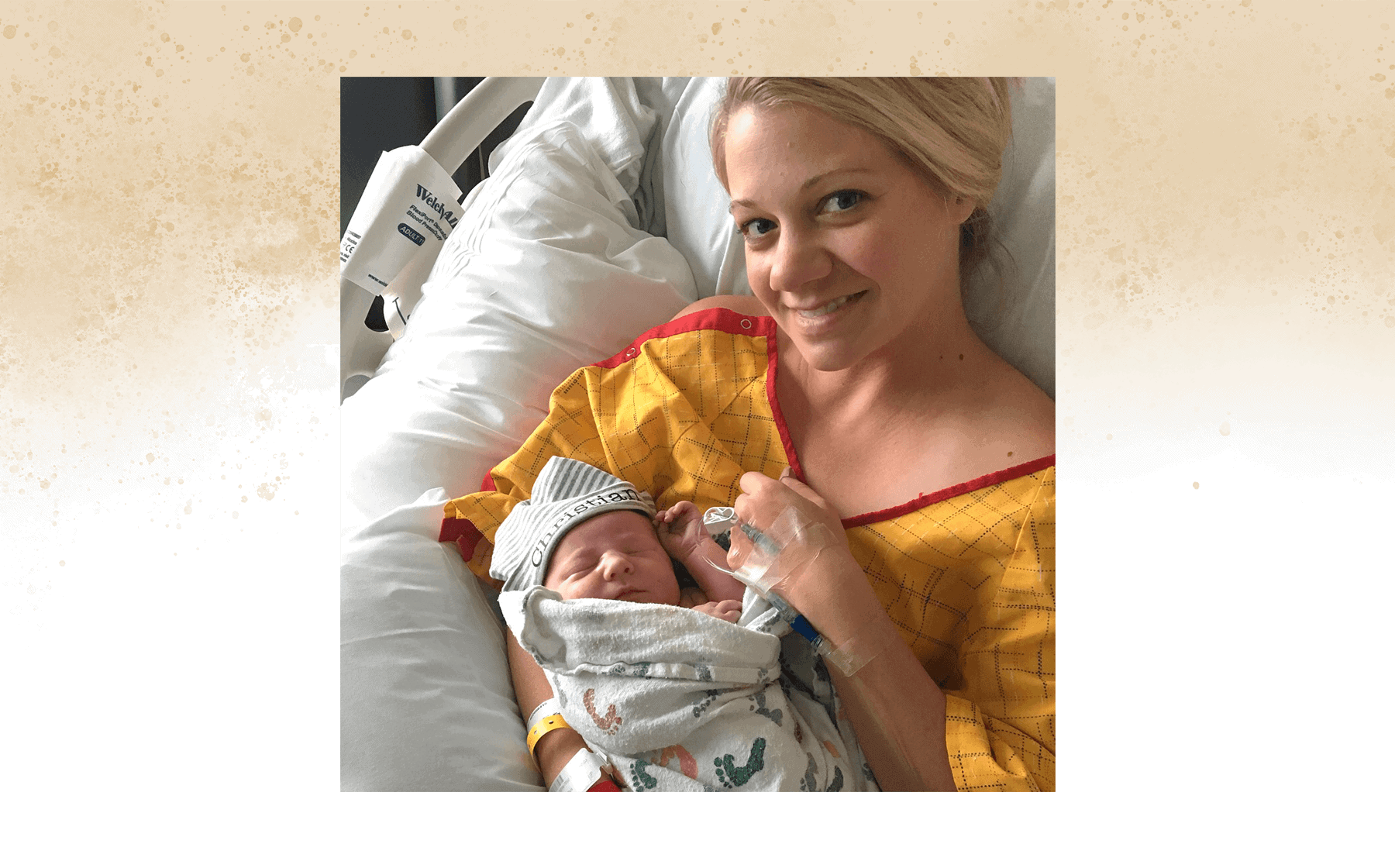Kristin and Kevin Botsford packed up their two sons—5-year-old Cooper and 2-year-old Carson—and headed to the OB-GYN for Kristin’s 20-week ultrasound. After Kristin checked in at the front desk, a technician led the family back to an exam room. Kristin settled on the table while Kevin corralled the boys in the corner. When the image of the baby popped up on the screen, Kevin pointed at the fuzzy black-and-white image moving around, telling his sons, “That’s your brother or sister!” The boys looked excited. Was the new baby a boy or girl? “It’s a boy!” the technician announced. The family rejoiced—Carson and Cooper grateful for a brother, Kristin and Kevin thankful for the boys’ excitement about new life. None of them paid much attention to the technician.
Was Something Wrong?
The technician kept clicking, measuring repeatedly and more carefully, and eventually Kristin noticed. She’d never had an ultrasound scan that lasted this long. Cooper and Carson were starting to get antsy. “These measurements seem off,” the technician said. “Let me have the doctor check them.”The family celebration ended abruptly. Kevin took the boys from the room while the doctor looked everything over. She gave Kristin some difficult news: Their baby was badly deformed, with a dangerously narrow chest cavity. His limbs were considerably shorter than was normal at his gestational age, and the femur bones were bent like tiny boomerangs.

But the doctor encouraged Kristin, telling her that more tests were needed to verify the baby’s condition. She suggested they visit a maternal fetal medicine (MFM) doctor.
What Would the Tests Show?
Soon after, the Botsfords received the test results, but the information didn’t put them at ease. Their son had clear signs of skeletal dysplasia, a condition that affects bone and cartilage development. Since the anomalies in his bone structure could be detected so early in the pregnancy, the MFM doctor believed they were likely to be fatal. “Do you want to terminate this pregnancy?” the doctor asked. Both Kristin and Kevin immediately said no. More testing confirmed that their son had Jeune syndrome, a congenital dwarfism, also called asphyxiating thoracic dystrophy. His chest cavity wouldn’t be large enough for him to breathe properly. According to this diagnosis, they learned, their baby wouldn’t live long, and during his short life, he would suffer terribly.
Could They Rely on the God of Comfort?
Again, the medical team suggested terminating the pregnancy. Again, the Botsfords said no. They remembered what their pastor had said: “Comfort is the god of our generation. Suffering is seen as a problem to be solved, not a providence from God.” They decided to let God work in their situation as He chose. “If I’m being honest, though, a large part of me wanted this painful process to be over very quickly,” Kristin confessed.

See Life 2021: Laura Huene talks choosing life for her daughter, Pearl, who died shortly after birth.
If the Botsfords thought the prognosis couldn’t get worse, they discovered that it could. After reading a fetal MRI, the doctor confirmed the diagnosis. He told them that a child with their baby’s measurements had never survived at their hospital, at the University of Texas Southwestern Medical Center in downtown Dallas—a renowned research facility. He would struggle for each breath.
How Long Would the Baby Live?
The Botsfords met with Dr. Natalie Frost, a neonatologist who explained the different levels of care available for the baby after birth. The truth was they didn’t know how long they would have him. Minutes? Hours? Days? Weeks? Dr. Frost said that if she had to guess, she would say hours, maybe a few days. Kristin and Kevin prayed fervently that God would perform a miracle and completely heal their son. Recognizing that He might not choose to heal their baby, they also prayed that He would give them the strength to live out their faith throughout this journey and beyond. On Saturday morning, Aug. 12, 2017, Kristin’s contractions began. The couple called their parents, encouraging them to get to the hospital in Dallas soon so they could see their new grandbaby before he passed away.
Why Did Baby Christian Cry?
Later that afternoon, Christian Robert was born—weighing in at 8 pounds, 1 ounce. But something unexpected was happening. He was crying. Loudly. A nurse placed Christian in Kristin’s arms. As Kristin held him, she kept waiting for him to struggle to breathe—or to die. Seconds turned to minutes, and her baby kept acting healthy. Finally the nurse took him to check his vitals—oxygen, normal; breathing, normal; bone structure, normal.

“This is not the same baby we saw in all those scans,” Dr. Julie Lo, the attending obstetrician, admitted. “I can’t explain it.” Kristin and Kevin could—“Only God could have changed the outcome.” Not long after Mom and baby got settled into a room, Dr. Frost appeared with good news. “OK, we need a new plan!” she said. Kristin felt excited by her child’s healthy appearance, but she tried to stay guarded. Were they really going to be able to take him home? Kristin and Christian stayed in the hospital a few days for observation. All of Christian’s signs were healthy, so the hospital released them. There was only one problem: Planning for the worst, the Botsfords had brought nothing with them to take a baby home. Kevin quickly headed to their house to get a car seat and other baby items and then returned to the hospital.
When Was Hospice Needed?
Even so, hospice workers came to check on Christian once a week. By the fourth week, Kristin told them, “This baby is healthy. Your services are no longer needed.” Christian, now 4 years old, is excited to start playing soccer and T-ball this coming year. He shows no signs of skeletal dysplasia or any other issue. Kristin kept the hospital discharge summary papers she received. The words clearly state, “Incompatible with life.” She shivers to think about what would have happened had she terminated their baby. “God had a plan,” she says. “Feelings aren’t facts. The Lord created this child, and we had to give Him time and room to work—in the way He chose. “This is all God.” Ginger Kolbaba is a contributing editor for Focus on the Family magazine and the author, contributor and ghostwriter of many books.




















